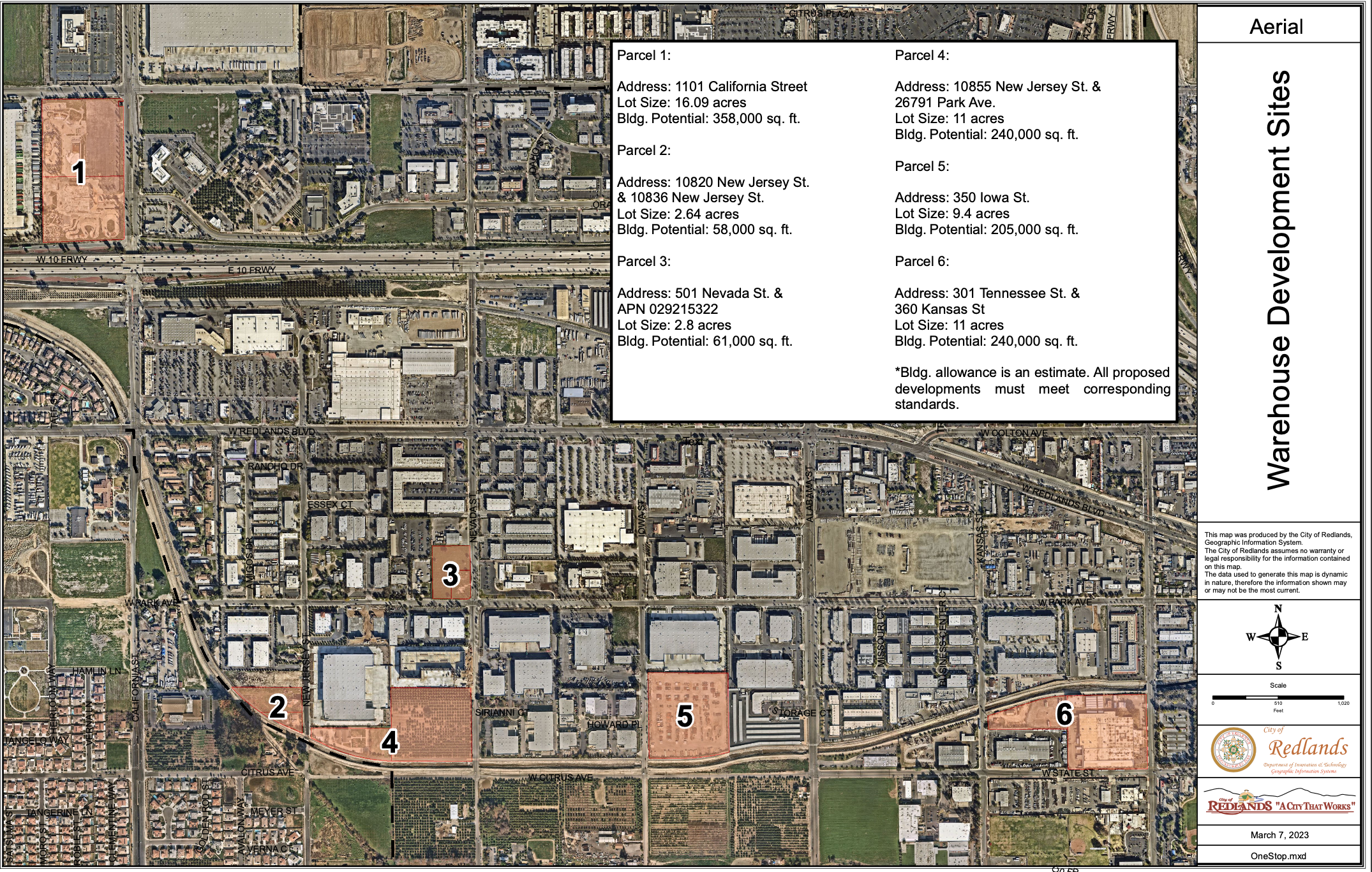Eight-hand piano quartet to perform March 10 in Redlands
The free concert is open to the public
The proposed ban would halt development on the three remaining eligible parcels and block the assembling of properties to build larger warehouse facilities.

REDLANDS, Calif. — The Redlands City Council voted 5-0 Tuesday night to direct staff to draft an ordinance that would ban new warehouse development citywide and limit how existing warehouses may be rebuilt.
Why it matters: The proposed ordinance is the city’s most direct move to prohibit construction of new warehouses. It would not only stop development on the three remaining parcels where large warehouses are currently allowed, but also prohibit property owners from tearing down smaller buildings in any part of the city to construct larger warehouse facilities.
Existing warehouses would remain legal uses and would be allowed to rebuild after a fire or natural disaster only to the same square footage and building height.
The motion was made by Councilmember Denise Davis and seconded by Councilmember Paul Barich.
City planners will now draft an ordinance based on the Planning Commission’s recommendation and return it to the commission for a public hearing.
Several residents spoke during public comment, urging the council to take significant steps to curb warehouse development. Speakers referenced the recently completed 357,610-square-foot warehouse on California Street — a project the council approved in July 2024 despite overwhelming community opposition — and questioned promises of jobs, tax revenue and mitigation measures that never materialized.
Resident Germaine Miles criticized the California Street warehouse as “empty warehouses, empty promises,” noting the building remains vacant and the developer’s previously stated job projections have not occurred. “Is this what we want more of in our city?” she asked. She also questioned when the promised public art feature would be delivered.
Others pointed to worsening air quality, increased truck traffic and the city’s Climate Action Plan.
Speaking on behalf of ANCA, a local environmental nonprofit, Dick Corneille, president of the board, pointed to the city’s updated climate plan, which found emissions from on-road vehicles make up more than 60 percent of the city’s greenhouse gas emissions.
“To meet the city’s goal of reducing emissions to one metric ton of carbon dioxide equivalent per capita by 2050, most of the reductions must come from the transportation sector,” Corneille said. “Therefore, we do not see how you can approve any new warehouse developments that add significantly to the transportation emissions.”
Several speakers reminded council members that community opposition has been consistent for years.
“Your constituents overwhelmingly said that we don’t want warehouses. Your Planning Commission said, ‘No more warehouses.’ And so we are begging you to actually listen to your constituents,” resident Valerie Taber said. “This is the way to make sure we are not adding more warehouses to our area.”
Council members echoed many of those concerns, with several acknowledging the tension between community objections and the legal constraints they faced when approving past projects.
Councilmember Davis, a longtime opponent of warehouse expansion in Redlands, spoke as both an elected official and a parent.
“I’m commenting tonight not only as a council member who has for years listened to hundreds of public comments adamantly asking us not to approve another warehouse. It has been discouraging, to say the least, that our community has not been listened to on this issue,” Davis said. “But I’m also speaking to you tonight as a mom of a 2-year-old. I think about the air he’s breathing every single day. I check the air quality daily, and more than half the days are moderate to severely bad.”
Councilmember Barich, who previously supported the California Street warehouse, said the project met all existing standards and the city risked litigation if it denied a compliant application.
“I didn’t want a warehouse necessarily there, but I also didn’t want to have the city exposed to a lawsuit,” Barich said. “Just because we voted doesn’t mean we’re for warehouses.”
Councilmember Eddie Tejeda emphasized that state law limits the city’s ability to deny projects that meet all zoning and development standards.
During the meeting, the city attorney sited the legal advice when discussing the California Street approval, saying: “The project met all the city standards and codes, and so the City Council was hard-pressed to deny, to try to make a finding that you had to base the denial on.”
The Planning Commission recommended denying the California Street warehouse because commissioners found it was not in conformity with the city’s General Plan and would adversely affect the surrounding area.
Mayor Pro Tem Marc Shaw, who previously served on the Planning Commission that challenged the California Street warehouse, emphasized the importance of stopping development on the three remaining parcels.
“But those other three, if we can take away that ability to make those warehouse sites, then I think we’re going in the right direction,” Shaw said.

The proposed changes stem from an October 2025 Planning Commission recommendation to halt new warehouse development while allowing existing facilities to remain. Commissioners raised concerns about the recent redevelopment of older commercial properties into large logistics centers and the potential for developers to assemble parcels to build bigger facilities.
City staff will now draft the ordinance incorporating the council’s direction. The proposal will return to the Planning Commission for a public hearing before coming back to the City Council for final adoption.
Sign up for our weekly newsletter